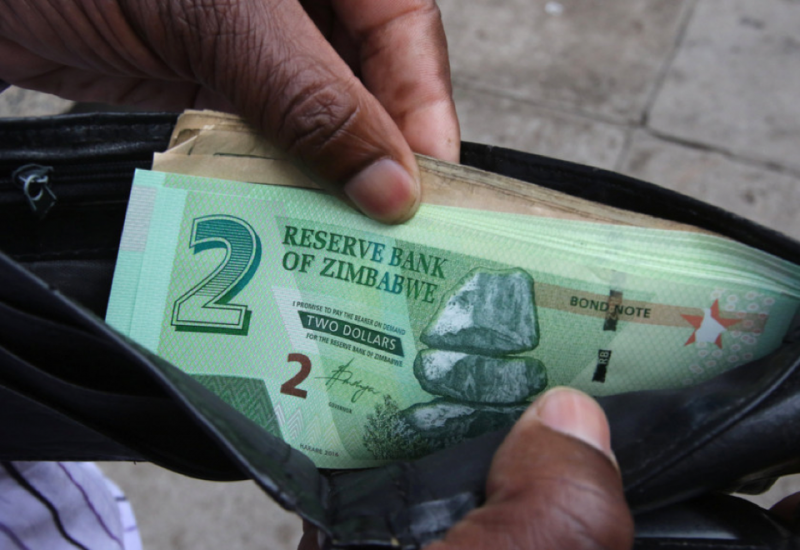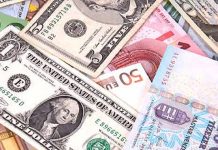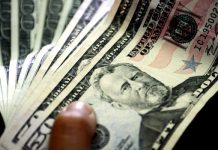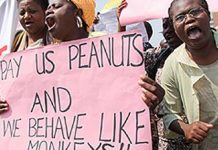Not having a currency of its own hasn’t stopped Zimbabwe from sliding into a currency crisis.
A scarcity of foreign exchange has led to long queues for fuel, bread and medicine and sent prices surging across the southern African country.
Police clashed with protesters in the capital, Harare, on Monday as the main trade-union group started a strike after the government more than doubled petrol prices to $3.31 a litre over the weekend, the highest in the world, according to GlobalPetrolPrices.com.
The roots of the pain lie in Zimbabwe’s decision to scrap its own currency, the Zimbabwe dollar, a decade ago, and to adopt a basket of foreign units of which the greenback is the most widely used. The central bank then started printing quasi-greenbacks to fund rampant government spending.
The result is a convoluted system of exchange rates, with consumers charged different prices depending on whether they pay in real dollars, electronic money or so-called bond notes — even though the government insists all three have the same value. It undermined that argument by saying that foreigners could still pay the old price for fuel of $1.32 a litre if they used cash dollars.
“There is a system of smoke and mirrors going on,” said Stephen Bailey-Smith, senior economist at Danish money manager Global Evolution Funds AG, which invests across Africa. “It makes it extremely difficult to understand the real situation with the economy.”
The crisis is a major headache for President Emmerson Mnangagwa, a 76-year-old former spy chief who promised better times for Zimbabweans when he won elections in July, taking over from long-standing ruler Robert Mugabe, under whom the economy began its descent. Both were members of the same party when Mugabe was ousted by the military in late 2017.
Finance Minister Mthuli Ncube said on Jan. 12 he’d introduce a new currency within a year. But he gave few details, beyond that the central bank was building reserves, which currently cover barely two weeks of imports. He’s also trying to restructure billions of dollars of defaulted multilateral debts so that Zimbabwe can obtain new international loans.
Mnangagwa is traveling to Russia and some of its neighbours before attending the World Economic Forum in Davos, Switzerland later this month.
‘Suffocating’
Meanwhile, many Zimbabwean manufacturers are closing down. The chief executive officer of Surface Wilmar, the biggest producer of cooking oil, said in an interview on Friday he had no choice but to shut the company because it couldn’t find the $6 million it needed each month to pay suppliers.
“Manufacturers are suffocating and unless something happens urgently, we could see the country grind to a halt,” Sifelani Jabangwe, head of the Confederation of Zimbabwe Industries, told reporters on Jan. 10.
The nation’s biggest brewer, Delta Corp Ltd., which is 40 percent owned by Anheuser-Busch InBev SA/NV, struck a deal with the government this month to get more foreign-exchange from the central bank for imports. In return, it pulled plans to reject payments in bond notes and electronic dollars, known as Real Time Gross Settlement, or RTGS.
Still, plenty of firms are offering discounts, sometimes of as much as 70 percent, if customers use real greenbacks.






